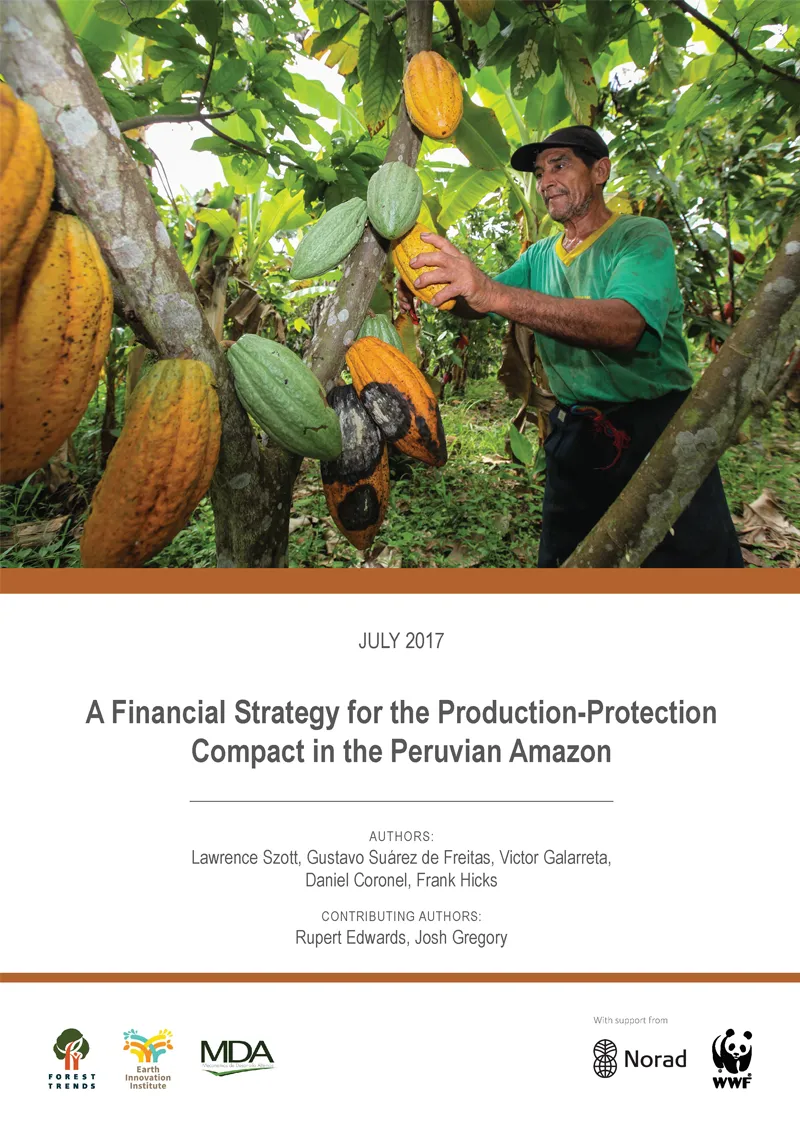The document highlights that Peru, holding the second-largest rainforest area in Latin America, faces accelerating deforestation, largely driven by small-plot agriculture and rural poverty. The Production-Protection Compact (PPC) is presented as a key strategy to combine environmentally sustainable and economically profitable agricultural production with forest conservation.
The report specifically diagnoses the financial needs and opportunities for supporting the PPC, including the scale of finance required for enabling conditions, evaluating existing public and private agricultural finance, and exploring potential for accessing international climate finance. It emphasizes that the PPC strategy must rely on incentives («carrots») rather than sanctions due to weak governance, offering increased access to credit, markets, and land use rights, all conditioned on reduced deforestation.
Significant barriers to smallholder farmers obtaining credit are identified, such as perceived high risk, lack of collateral, and high transaction costs. Despite substantial agricultural lending nationally, only a small portion reaches smallholders, leaving an unmet credit need of approximately US$2.38 billion in the Amazon. The document provides recommendations to improve PPC implementation, focusing on enhancing smallholder credit access through innovative policies, alternative lending models (e.g., group loans, factoring), and risk mitigation mechanisms. It also suggests improving access to international climate finance and encouraging private investment by linking to specialty markets and certification schemes


